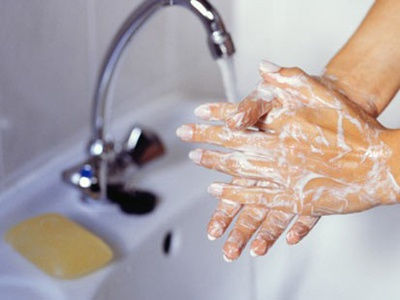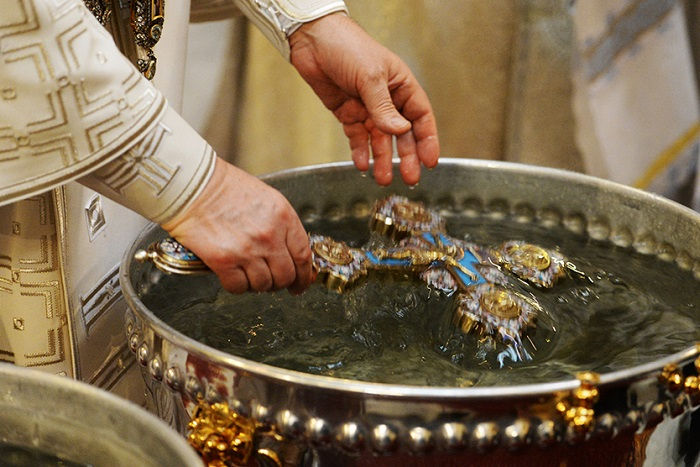Lady Macbeth Effect: Washing Away Guilt
- Neha Mishra

- Aug 29, 2020
- 4 min read
Updated: Aug 30, 2020
(Did you know you could read a compact piece of this article in our Tidbits section? Check out now. )
In a village of ordinary Sponges going about their life, lived Sin. Sponges lived carefully, so as to not run down Sin, as Sin stained black anybody she met. Sin was beautiful and attractive, but she was looked down upon based on the high moral standards set up by the Sponges for themselves. Oh, those hypocrite standards! Attractions and desires are best avoided by true Saints and need I say Sponges aren't Saints. So they all got themselves stained with Sin at some point in their life. What was done couldn't be undone. But the Sponges failed at living with the truth. They felt morally impure but capable of purifying it.
One day, on hearing about this village, Soap came to check it out. Sponges found their blessing in Soap, and Soap found its business. Now whenever the Sponges were stained, they bathed in Soap's sacred water and purified themselves. Everyone lived happily ever after.

We are the sponges. Sin stands for any act of treachery, deceit, crime, or any unethical behavior. Soap is soap or any cleaning object, like toothpaste, disinfectant or water, simply suggesting an act of washing. Now, unlike in the story where the sponges consciously chose to wash away their sins, in our ordinary life, when we lie or cheat or feel guilty of our actions we tend to choose cleaning objects and actions over other things. It happens because our subconscious associates the act of washing or cleaning with purifying ourselves.
Lady Macbeth effect as it is called.

Remember how in the famous Shakespearean play Macbeth, Lady Macbeth sleepwalked to wash her blood-stained hands for the nights to follow the murder? The blood-stained hands were of course her hallucinations but it was her conscience which was stained. It led her to wash her hands, to wash the stain on her conscience. Poor her! I can say Shakespeare played brilliant with that stroke but he couldn't have known what two researchers- Chen Bo Zhong, a behavioral researcher at the University of Toronto, and Katie Liljenquist, a graduate student at Northwestern, were set to find this behavioral link in their research.

In an experiment, participants were asked to recall ethical and unethical events. Those who recalled unethical events, mostly filled the words W_ _H, SH_ _ _ R, and S_ _ P, like Wash, Shower, and Soap. While the other candidates, who recalled ethical events, returned a variable of words like Wish, Shaker, Soup, etc.

It might be difficult to believe but do we really know our psychology better than researchers?
Let's take this other way round, as also the scientists did. Okay, we associate cleaning with moral purification, but does it really relieve our guilt? The answer was sought for in a couple of experiments, in one of which, participants were asked to write false mails. The experiment was conducted in 2 rounds.
In one round participant were asked to wash their hands after typing the deceitful mail (under the pretext that keyboard was dirty). These participants, feeling morally pure after washing hands, did not feel the need to donate for a social cause. While the other set of participants readily donated, as atonement (it seems they still carried their stained conscience).

So now when you find yourself at fault, will you run to a washbasin or hit the shower? This is not what we do ordinarily. But what we do is, we clean the mess in our wardrobe, we clean our room, declutter the files on our desktop, or delete the unnecessary stuff from our phone. All of that instantly makes us feel better. Ladies and Gentlemen! That's our version of Lady Macbeth effect. So when everything is going wrong and you are blaming yourself, and you need a way out, start by cleaning your room.

This notion of moral purification by a bath or with some sacred water is common in many religions like Christianity, Sikhism, and Hinduism. If you are a Hindu you know how a bath in Ganga (the sacred river) can wash away our sins as it were merely some stains on the exterior of our body.

Cleaning our conscience alone doesn't make us better beings. It only helps us live with what we ought to live with. Unless we have a time machine to go back in time and change the amoral mess we made, and that's not happening anytime soon. What's undesirable is that Lady Macbeth effect can keep you from guilt for all the things you do wrong, merely by cleaning.
But Lady Macbeth couldn't bring the dead back, the blood on her hands kept returning. She didn't feel pure, we can. That reduces our chances of actual atonement, by making right or with an act of kindness. Because if anytime you committed sin all you had to do was to bathe in Ganga, you'd be ready for your next sin without making any good. Lady Macbeth died with her guilt. On the other hand, we can live clean and have more potential to hold our sins.

They say Cleanliness is next to Godliness, perhaps it's merely a feeling brought on by Lady Macbeth Effect; perhaps our acts can be closer to Godliness than cleanliness is... :)




Comments